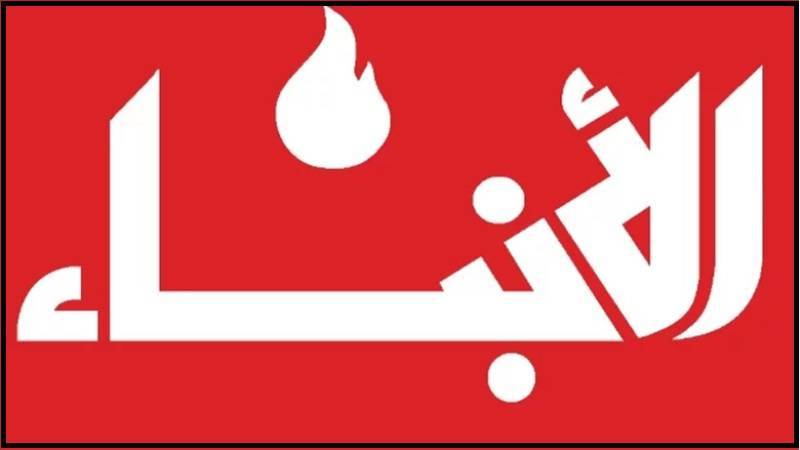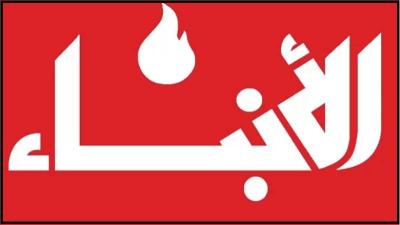The electronic newspaper "Al-Anbaa" reported that with the absence of discussions about the possibility of any breakthrough in the governmental file due to MP Gibran Bassil's announced insistence on his obstructive conditions for the formation of the government, and the implicit insistence of influential forces on delaying the formation linked to non-local issues, the troubled atmosphere in the indirect negotiations between the new American administration and Iran regarding the nuclear file indicates that the possibility of enacting change is not near.
Meanwhile, Bkerke has attracted local political activity reflecting a convergence with the stances of Maronite Patriarch Bechara Boutros al-Rai, who advocates for Lebanon's neutrality and calls for an international supportive conference against the scheme to transform Lebanon from a sovereign state to a territory without legal authority and a launching pad for missiles, as warned by the head of the Progressive Socialist Party, Walid Jumblatt. While Bassil attempted to "challenge" al-Rai through a message sent to the Vatican, Jumblatt dispatched former minister Ghazi Al-Aridee to Bkerke to affirm this shared concern and commitment to the Lebanese entity and the continued existence of the state and the diversity and freedoms upon which Lebanon was founded.
After the meeting, Al-Aridee emphasized that "the daily facts do not bode well, but for us, who care about this Lebanon and its unique flavor in the region, we will continue to work and struggle with everyone who expresses their conviction in this Lebanon and their commitment to it, because this Lebanon faces many serious challenges that threaten changes that would leave neither us nor our children nor future generations with the Lebanon we once knew." He pointed out that al-Rai has made earnest attempts to facilitate the gathering of the two leaders — sadly, this is the truth in the country. Such matters should not require external intervention if we adhere to the constitution and revert to the National Accord Document, to the constitution, and to a sense of national responsibility regarding the country's political, economic, social, and financial predicament, adding, "To be clear, there are those who do not want Saad Hariri to be prime minister; the rest are just details." He confirmed that there is no obstructive third for anyone and that Gibran Bassil's proposal was born dead.
The "Strong Republic" bloc also visited Bkerke yesterday. Member Antoine Habashi noted that he sensed from al-Rai "a clear picture and conviction that Lebanon cannot continue in its current state because Lebanon's nature consists of playing the role of a gateway for Arabs and the East and a bridge to peace and neutrality, not entangling in wars that make the whole world an enemy." Neutrality, according to al-Rai's perspective, is part of Lebanon's essence and nature, and its openness, describing the opposition to al-Rai’s policy as "unjustified," and asserting that al-Rai's positions "are not directed against anyone; the concepts he has presented are intrinsic to Lebanon's nature, and his demand for neutrality and the holding of an international conference under the United Nations aims to return Lebanon to what it was since independence and in the first government formed, which bore the slogan 'neither East nor West.'"
Habashi stated in an interview with "Al-Anbaa" that "Lebanon will not accept to become a state of confrontation, but rather a supporting state." He expressed concern that due to part of the Lebanese intervening in Arab countries' affairs without justification, Lebanon was placed outside the framework of international legitimacy, and that the positions of al-Rai stem from Lebanon's message.
As for Bassil's message to the Vatican, former MP Faris Said downplayed its significance, indicating in an interview with "Al-Anbaa" that he does not believe that the Vatican, which led the synod for Lebanon and elevated it to the status of a mission as described by Pope John Paul II, "can be influenced by any particular political choice, as the Vatican's options are strategic and relate to encouraging Christians to engage with their Arab environment and not to clash with the Muslim majority in the region, emphasizing the necessity of preserving coexistence." He described the growing support around Bkerke as "a statement that no one has the right to think that Bkerke is joking about national and sovereign stances, and that Bkerke's fence is not low," considering Bkerke's return to the national arena as "a guarantee for all Lebanese, especially Christians."
Said also praised the recent meeting between Jumblatt and the "Meeting of Our Lady of the Mountain," commending Jumblatt's "courage and uniqueness among the entire political class in his direct criticism of those calling for the transition from identifying responsibilities to compensation for the Beirut port explosion." He emphasized the importance of maintaining the entity, transcending the internal disagreements regarding government formation, and underscoring that as long as Iran is present in Lebanon, there is a danger to the Lebanese entity. This statement resonated with all Lebanese, and we consider it to be significant despite the differences we have with him concerning international decisions.
Eli Mahfoud, head of the Change Movement, also commented on Bkerke's activity, mentioning in an interview with "Al-Anbaa" the supportive position issued a few days ago from the Dar al-Fatwa. He considered that "the scene that may unfold on Saturday with the large gathering at Bkerke carrying the Lebanese flag will have great implications, as what concerns Hezbollah, which criticizes al-Rai, the most is the transmission of its image abroad; local critiques do not bother it as much as the transfer of its image internationally via international conferences, which it fiercely fights to prevent."
Mahfoud revealed an upcoming significant meeting between al-Rai and U.S. President Joe Biden, stating, "Because the topic has transcended the issue of government formation and is approaching matters of the entity, the Taif Agreement, and the constitution," speaking of a "national consensus around al-Rai, especially after the return of the assassination series."
On the governmental front, sources from Dar al-Hekma denied through "Al-Anbaa" the occurrence of an imminent visit by President Saad Hariri to Baabda, indicating that "the positions remain unchanged, and Hariri firmly refuses to discuss increasing the number of ministers in the government to 20 or 22, insisting on a mission government of 18 ministers, and any visit to the presidential palace would be under that title only."
In another context, while the world is witnessing a noticeable decline in the number of COVID-19 infections, Lebanon's numbers have begun to rise again. Medical sources expressed their concern to "Al-Anbaa" over this surge, fearing that the coming days might bring "unexpected surprises" amid the apparent laxity in adhering to the health emergency plan that is nearing its end, in addition to the blatant disputes regarding the smuggling of vaccines from outside the official platform.
While Health Minister Hamad Hassan justified what happened in parliament and the presidential palace as "a sovereign decision," which provoked further negative reactions, ministry sources told "Al-Anbaa" that what happened was "an unintended mistake and matters have returned to normal." The sources confirmed an increase in the number of vaccines in March and an increase in vaccination centers, stating that Lebanese citizens would notice significant development starting from April, both regarding imported vaccines and the number of vaccinated individuals.




